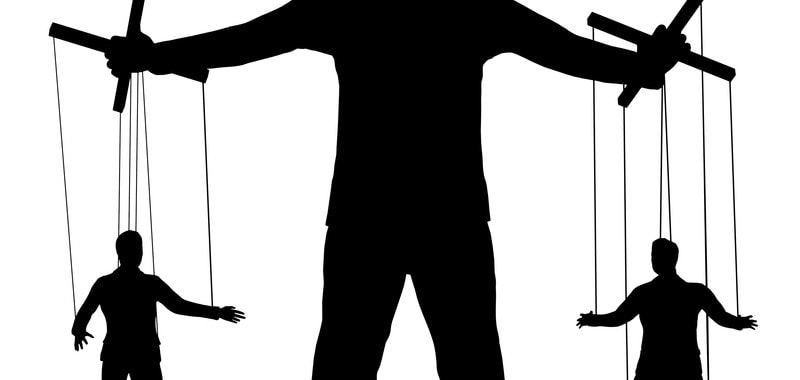Gaslighting – It Makes Us Feel Like A PuppetHave you ever had a discussion with someone that leaves you feeling dumbfounded and rattled? I spent a lot of my childhood feeling like I was crazy because my Dad would always want me to change my thoughts and opinions. It was to the point where I just stopped having any ideas or thoughts of my own. I felt like everything I did and thought was wrong. This pattern repeated again in my marriage. It was very familiar and I didn’t like it. I would walk away from arguments not knowing what had just happened. I only knew I had given in again. This is called gaslighting and it is considered to be psychological abuse. Many people who are close to an addict or alcoholic experience gaslighting. According to Wikipedia, gaslighting is a form of mental abuse in which information is twisted or spun, selectively omitted to favour the gaslighter, or false information is presented with the intent of making the gaslightee doubt his or her own memory, perception and sanity. It is not enough for the gaslightee to agree with the gaslighter. The purpose of gaslighting is to get the gaslightee to change his or her belief to be in line with the gaslighter. Gaslighting is often very smooth and slick. The gaslightee doesn’t realize it when it is happening, but will feel bewildered by the outcome of the conversation.
Gaslighters need to be in control. They need things to be “their way” so they use gaslighting as a form of manipulation. The gaslighter knocks the gaslightee off balance by creating a reaction of anger, frustration or sadness. When this happens, the gaslighter attacks and behaves as if the gaslightee’s feelings are irrational and abnormal. When you know what gaslighting looks like and feels like, you can react and respond differently. What are some of the signs of being gaslighted?
Changing the dynamic of this kind of relationship is very challenging. It requires both people to be willing to change. If the one doing the gaslighting is not willing to change, the gaslightee will need to limit contact for his or her own emotional safety. Here are four things you can do to help yourself if you still need or want to have contact with the gaslighter.
Families Do Recover offers support through individual counselling and support groups. Even if you live outside the Vancouver area, you can still participate in a group by accessing our online groups. Our goal is to provide education and support so you can make the decisions that feel right to you and allow you to live a life free of self doubt and questioning.
0 Comments
Leave a Reply. |
AuthorI am a Family Addictions Specialist and use hypnotherapy to help families get past what keeps them stuck in the cycle of addiction. I am a person in long term recovery and have had my own transformation of healing. I get to live the most incredible life as me... my true and authentic self. I can help you do the same! ArchivesCategories |
Services |
Company |

 RSS Feed
RSS Feed

